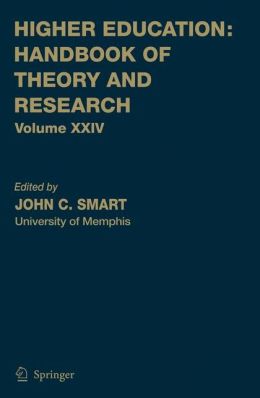2) MLA Citation:
Goldrick-Rab, Sara, Douglas N. Harris, and Philip A. Trostel. "Why Financial Aid Matters (or Does Not) for College Success: Toward a New Interdisciplinary Perspective." Higher Education: Handbook of
Theory and Research 24 (2009): 1-45. Print.
(I cant get this to indent properly, and it is very frustrating.)
3) Summary:
As the title of the article suggests, the author's set out to find a measurable answer on whether financial aid positively or negatively affects students success during and after college. In their introduction, they displayed a multitude of questions that they intended to answer during their study. For example, not only did they want to know if aid affects success, but also through what mechanisms, and if the effects are largely direct or indirect from the causes. Furthermore, they wanted to know if, in theory, financial aid should affect success. They initiated an empirical test applied to the human capital theory and the sociological and psychological explanations of success. From their findings, the researchers found that under the human capital theory initially, more aid leads to increased level of enrollment, however, "there is considerably less evidence regarding the direct impact of aid on college completion, even though retention is an explicit goal of federal aid programs". Furthermore, they stated that in terms of persistence, need based grants are more important than loans. Finally, the researchers very briefly touched upon students' transition to adulthood and the effects of financial aid on this process.
4) Author:
Sara Goldrick-Rab is associate professor of educational policy studies and sociology at the University of Wisconsin at Madison. Her research is directed at policies that deal with reducing socioeconomic and racial inequalities. Not only has she been published in multiple scholarly journals, she is also the co-author of Putting Poor People to Work: How the Work-First Idea Eroded College Access the Poor.
Douglas N. Harris is an Associate Professor of Economics at Tulane University and the University Endowed Chair in Public Education. According to the National Education Policy Center, "His research interests include achievement gaps and inequities, teacher quality, accountability, school finance, and the relationship between education and economic competitiveness."
Douglas N. Harris is an Associate Professor of Economics at Tulane University and the University Endowed Chair in Public Education. According to the National Education Policy Center, "His research interests include achievement gaps and inequities, teacher quality, accountability, school finance, and the relationship between education and economic competitiveness."
5) Key Terms:
Human Capital Theory: this model is the assumption that humans behave "rationally and are well informed about their choices." The authors intended on using this as the main theory being tested empirically.
Financial Nexus theory: "the ability of financial aid to affect decisions the decisions made by college students depends on the availability of aid and student perceptions of college costs"
6) Quotes:
"A simple correlation between aid receipt and college success is likely to be negative because students from low income faimiles, in the absence of aid, are for a variety of reasons, less likely to succeed" (Goldrick, 2).
"Researchers have had great difficulty identifying causal effects of aid on college completion because there are many reason to expect poor students to have lower rates of entry and persistence -- from lower levels of paretnal education to inferior elementary and secondary school prepartion" (Goldrick , 9)
"The prediction of the human captial theory - that more aid leads to increased college entry and completion - is generally supported by empirical evidence." (Goldrick, 11)
7) Value:
This particular article proposes great value towards my final paper, as it provides an empirical model that supports theories that I plan on researching. The theories discussed are completely relevant, and they should be brought up within my personal paper. In fact, the financial nexus theory and can be further expanded on a macroeconomic level in asses post college success. Furthermore. The human capital theory directly relates to the ability of students to assess their decision on whether or not to attend college, which will be directly mentioned in my research.

No comments:
Post a Comment